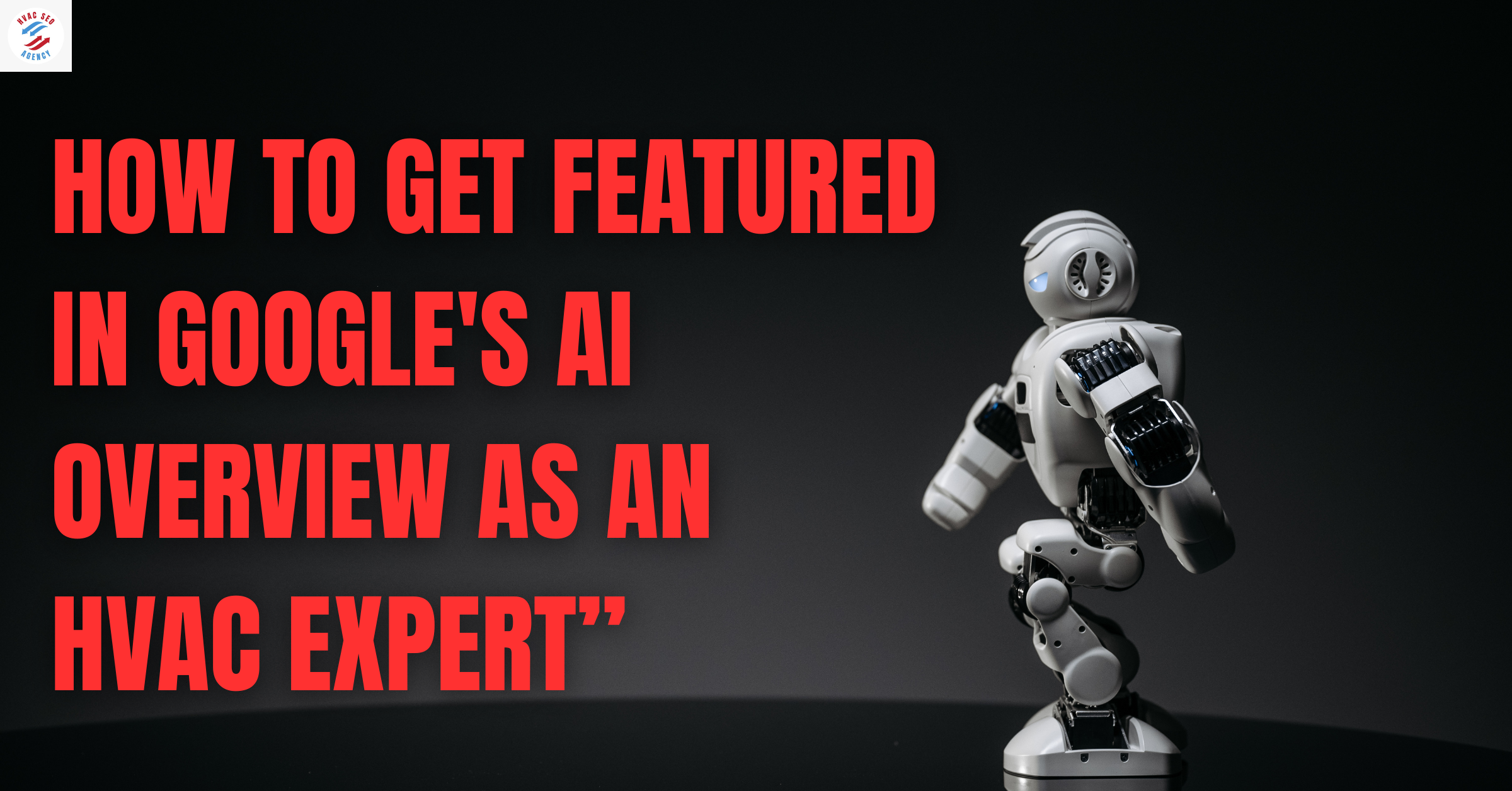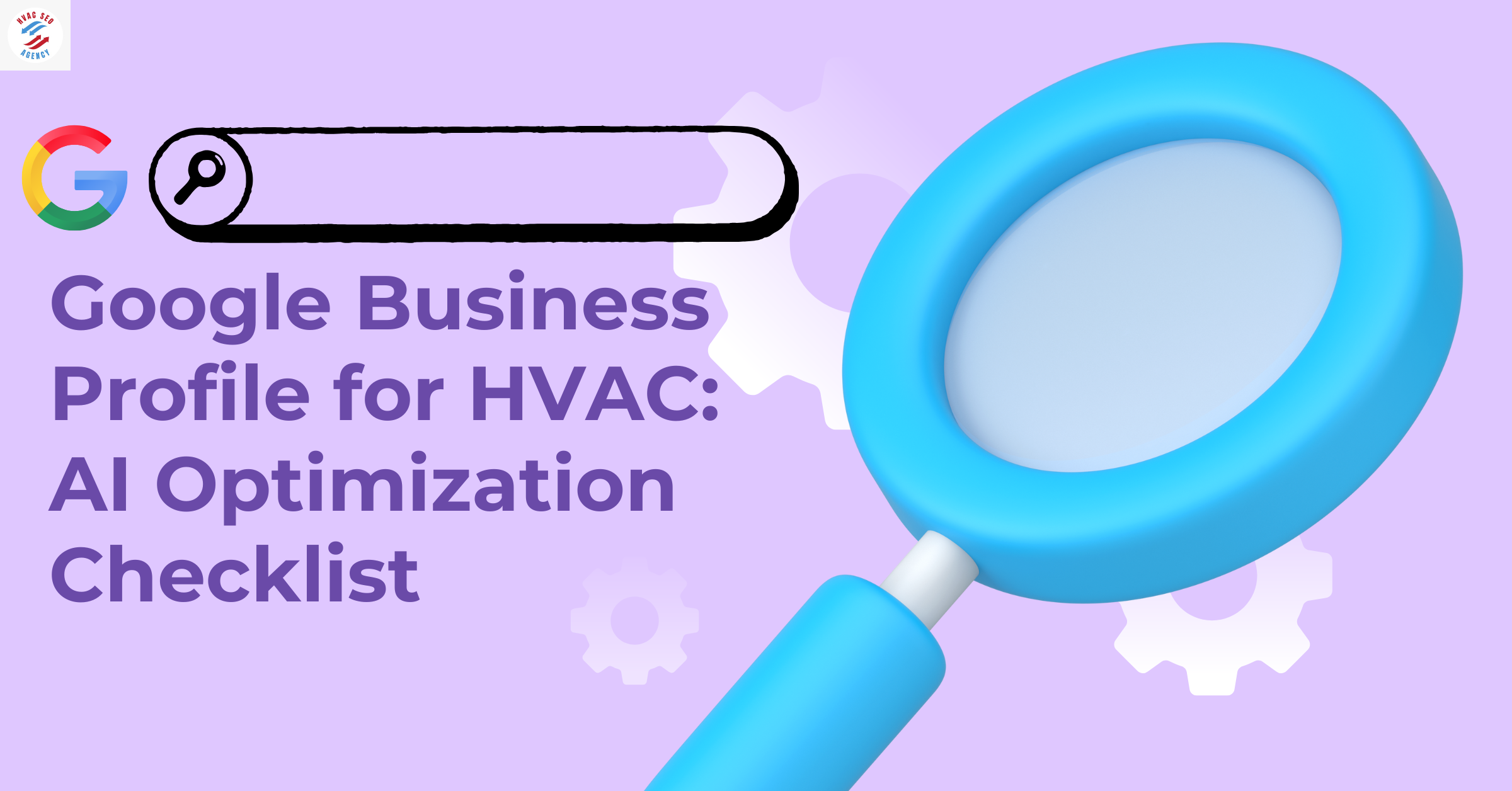Say Goodbye to Noisy HVAC Systems: Top Noise Reduction Methods

Noisy HVAC systems can disrupt indoor comfort, reduce occupant satisfaction, and interfere with communication. Partnering with an expert HVAC SEO agency helps HVAC businesses effectively market quiet HVAC systems, attract targeted leads, and boost revenue by optimizing online visibility and customer engagement. With the right HVAC SEO services, businesses can rank higher for searches like HVAC noise reduction and quiet HVAC systems, ensuring they reach customers actively looking for solutions. SEO-driven content, local optimization, and keyword targeting help generate more leads, increase conversions, and establish authority in the competitive HVAC industry. By leveraging HVAC SEO Services in Tampa, companies can enhance brand awareness, build trust with potential customers, and increase sales. Effective digital marketing strategies, including website optimization and content marketing, play a crucial role in long-term business growth and visibility.
Impact on Comfort
The Environmental Protection Agency (EPA) recommends that indoor noise levels in residential areas should not exceed 45 decibels (dB) to maintain comfort. However, many standard HVAC systems operate above this threshold, leading to potential disturbances in daily activities. Excessive HVAC noise can interfere with sleep, concentration, and overall well-being, making it difficult for occupants to enjoy a peaceful indoor environment. Noise pollution from HVAC units is a common issue in both residential and commercial spaces, causing discomfort and reducing productivity. Investing in quiet HVAC systems and effective HVAC noise reduction strategies can significantly enhance indoor comfort, improve focus, and create a more pleasant living or working atmosphere.
Energy Efficiency Concerns
Noisy HVAC systems often indicate underlying inefficiencies. For instance, older or poorly maintained units may work harder to achieve desired temperatures, resulting in increased energy consumption. Upgrading to modern, energy-efficient HVAC systems can reduce energy consumption by up to 30%, leading to both noise reduction and cost savings.
Common Noise Sources in HVAC Systems
Airflow Restrictions: Clogged filters or obstructed ducts can cause turbulent airflow, leading to increased noise levels.
Mechanical Components: Worn-out or loose parts, such as fans, motors, or compressors, can produce rattling or buzzing sounds.
Refrigerant Issues: Improper refrigerant levels can cause the system to operate noisily.
Ductwork Problems: Poorly designed or insulated ductwork can amplify noise transmission throughout the building.
Benefits of HVAC Noise Reduction
Enhanced Comfort: Reducing HVAC noise contributes to a more peaceful indoor environment, improving overall comfort.
Improved Productivity: Quieter systems minimize distractions, leading to better concentration and productivity, especially in work settings.
Energy Efficiency: Addressing noise issues often involves maintenance or upgrades that enhance system efficiency, resulting in energy savings.
Quiet HVAC Systems
Graph: Noise Levels of Common HVAC Systems
Investing in quiet HVAC systems can significantly improve indoor comfort. Modern units are designed with noise reduction technologies, such as sound-dampening materials and variable-speed fans, to operate at lower decibel levels. For example, some high-efficiency air conditioners operate as quietly as 57 dB, while heat pumps can go as low as 43 dB in their quietest mode.
2. Common Causes of Noisy HVAC Systems
Understanding the root causes of noise in HVAC systems is essential for effective HVAC noise reduction. Identifying these sources can lead to quieter and more efficient quiet HVAC systems, improving overall indoor comfort and energy efficiency. Common issues like airflow restrictions, loose mechanical components, and uninsulated ductwork contribute to excessive noise, making it crucial to diagnose and address these problems early. Regular maintenance, proper installation, and upgrading to modern HVAC technology can help minimize noise disturbances and enhance system performance. Additionally, for HVAC business owners looking to expand their reach, understanding How to Franchise Your HVAC Business Successfully can be a strategic move. A well-structured franchise model ensures consistency in HVAC services, including noise reduction solutions, allowing businesses to scale while maintaining service quality and customer satisfaction.
1. Airflow Restrictions
Clogged Filters: Dirty or clogged air filters impede airflow, causing the system to work harder and produce more noise.
Obstructed Ducts: Debris or obstructions within the ductwork can lead to turbulent airflow, resulting in increased noise levels.
2. Mechanical Components
Loose or Damaged Parts: Components such as screws, panels, or blower motors can become loose or damaged, leading to rattling or banging noises.
Worn Bearings: Over time, motor bearings can wear out, causing grinding or squealing sounds during operation.
3. Refrigerant Issues
Leaks: A hissing noise often indicates a refrigerant leak, which can compromise system efficiency and increase noise levels.
Overcharging: Excessive refrigerant can cause high-pressure buildup, leading to unusual noises and potential system damage.
4. Ductwork Problems
Expansion and Contraction: Metal ducts can produce popping or banging sounds due to thermal expansion and contraction when temperatures change.
Loose or Uninsulated Ducts: Poorly secured or uninsulated ducts can vibrate or transmit noise throughout the building.
5. External Factors
Improper Installation: Incorrect installation can lead to misaligned components or inadequate support, resulting in increased noise.
Environmental Influences: External elements like debris, weather conditions, or pests can introduce noise into the HVAC system.
How Climate & Weather Conditions Impact HVAC Noise
1. How Seasonal Temperature Changes Affect HVAC Noise
Outdoor and indoor climate conditions play a crucial role in HVAC system noise levels. Depending on temperature, humidity, wind, and seasonal changes, HVAC units may generate more or less noise due to increased workload and material expansion/contraction.
During summer, HVAC systems often work harder to maintain indoor cooling, leading to increased fan speed and compressor activity, which can amplify operational noise. This makes routine maintenance and strategic upgrades crucial to keeping systems running efficiently while minimizing noise disturbances. For HVAC businesses, offering The Best HVAC Services to Promote During Summer—such as AC tune-ups, refrigerant level checks, and duct inspections—ensures optimal performance while reducing unnecessary noise. These seasonal services not only improve energy efficiency but also enhance customer satisfaction by preventing excessive HVAC noise caused by system strain.
A. Hot Summers & Increased HVAC Workload
Higher temperatures force HVAC units to work harder, increasing fan speed and compressor activity, which leads to louder operational noise.
In extreme heat, compressors and condensers cycle more frequently, producing constant buzzing or clicking sounds.
Overheated electrical components may generate whining or high-pitched sounds due to increased energy consumption.
Solution: Regular maintenance, coil cleaning, and proper refrigerant levels can prevent overexertion.
B. Cold Weather & Duct Expansion/Contraction
Metal ductwork expands and contracts due to temperature fluctuations, producing popping or banging noises.
The thermal stress on metal components can weaken HVAC unit joints, leading to loose fittings and vibrations.
Frozen coils or refrigerant lines can strain the compressor, causing loud hissing or cracking noises.
To prevent these cold-weather HVAC issues, understanding How to Prepare Your HVAC Business for the Winter Season is crucial. HVAC businesses should focus on winter-specific services, such as insulating ductwork, checking refrigerant levels, and performing pre-season maintenance to minimize noise disruptions and system failures. By offering proactive winter HVAC solutions, businesses can ensure quieter, more efficient operations while increasing customer satisfaction and service bookings.
Solution: Insulating ductwork and performing winter HVAC inspections can minimize these issues.
2. How Humidity & Moisture Affect HVAC Noise
High humidity increases condensation in HVAC units, leading to gurgling or dripping noises.
Moisture accumulation in ducts can cause mold growth, leading to airflow restriction and noise amplification.
Low humidity makes materials brittle, increasing the chances of air leaks and whistling noises.
Solution: Installing dehumidifiers in summer and humidifiers in winter can balance moisture levels.
3. Wind & Storm Effects on Outdoor HVAC Noise
Strong winds create air pressure fluctuations, causing rattling or whistling noises in HVAC vents.
Flying debris can get stuck in outdoor units, leading to clanking and obstruction noises.
Heavy rain and snow may flood air intake areas, causing waterlogged sounds or system failure.
Solution: Installing wind guards and regular debris checks helps reduce noise impact.
Statistical Overview of Common HVAC Noise Sources
Understanding the prevalence of various noise sources in HVAC systems can aid in prioritizing maintenance efforts.
Note: The above percentages are illustrative and may vary based on specific studies and regional data.
Graph: Distribution of HVAC Noise Sources
A visual representation of the distribution of noise sources can provide insight into the most common issues affecting HVAC systems.
3. Best HVAC Noise Reduction Methods
Achieving a quieter indoor environment requires implementing effective HVAC noise reduction strategies. Below are key methods to consider:
1. Upgrading to a Quiet HVAC System
Modern quiet HVAC systems are engineered to operate at reduced noise levels. For instance, the Trane XV18 Variable Speed Air Conditioner operates as quietly as 57 decibels (dB), while the Lennox SL28XCV functions at approximately 59 dB. Considering that a normal conversation is around 60 dB, these systems provide a significant noise reduction.
2. Regular HVAC Maintenance for Noise Prevention
Routine maintenance is crucial for minimizing noise:
Cleaning or Replacing Air Filters: Clogged filters can cause the system to work harder, increasing noise levels. Regular maintenance ensures quieter operation.
Inspecting and Tightening Components: Loose parts such as screws or panels can produce rattling sounds. Regular inspections help maintain system integrity and reduce noise.
3. Installing Sound Barriers and Insulation
Proper insulation can significantly reduce noise transmission:
Ductwork Insulation: Insulating ducts prevents noise from traveling through the system. This method is effective in reducing overall noise levels.
Sound Barriers: Installing barriers around the HVAC unit can block noise from reaching occupied spaces. This approach is beneficial in maintaining a quieter environment.
4. Using Variable Speed Fans for Noise Control
Variable speed fans adjust their speed based on heating or cooling demands, operating more quietly than traditional single-speed fans. This technology contributes to a significant reduction in operational noise.
5. Replacing Noisy Ductwork Components
Addressing specific ductwork issues can lead to noise reduction:
Duct Silencers: Installing duct silencers can reduce noise levels in occupied spaces. This method is effective in minimizing noise transmission through ducts.
Flexible Duct Connections: Using flexible connections can absorb vibrations, reducing noise caused by airflow and mechanical components.
6. Choosing the Right HVAC Installation Location
Strategic placement of HVAC units can influence noise levels:
Outdoor Units: Positioning outdoor units away from windows and occupied areas minimizes noise intrusion.
Indoor Units: Installing indoor units in areas with natural sound barriers, such as closets or mechanical rooms, can reduce perceived noise.
7. Using Anti-Vibration Pads for HVAC Units
Anti-vibration pads absorb mechanical vibrations from HVAC units, preventing these vibrations from translating into noise. This simple addition can lead to a noticeable decrease in operational noise.
8. Implementing Smart HVAC Controls for Noise Reduction
Smart controls allow for optimized operation:
Scheduled Operation: Programming the HVAC system to operate at reduced capacity during certain times can lower noise levels.
Remote Monitoring: Identifying and addressing noise issues promptly through remote diagnostics ensures continuous quiet operation.
Effectiveness of HVAC Noise Reduction Methods
The following table summarizes the potential noise reduction achieved by each method:
Note: Actual noise reduction may vary based on specific system conditions and implementation quality.
4. The Role of Technology in HVAC Noise Reduction
Advancements in HVAC technology have significantly contributed to the development of quiet HVAC systems, enhancing indoor comfort and energy efficiency. Key technological innovations include:
1. Advancements in Compressor Technology
Variable-Speed Compressors: These compressors adjust their motor speed to match the building's heating and cooling demands, resulting in energy savings and quieter operation compared to standard constant-speed compressors.
Inverter Technology: Inverter-driven compressors modulate their speed based on real-time cooling or heating requirements, reducing the frequent on-off cycling that causes noise in traditional systems.
2. Smart Thermostats and Noise Monitoring
Occupancy Detection: Smart thermostats equipped with occupancy sensors can adjust HVAC operation based on room usage, optimizing performance and minimizing unnecessary noise. For example, the Honeywell T9 Smart Home Thermostat uses sensors to detect occupancy, allowing for temperature adjustments that can lead to quieter operation.
Noise Monitoring: Integration of noise monitoring sensors with smart thermostats enables real-time detection of unusual sounds, facilitating prompt maintenance and reducing prolonged noise disturbances.
3. AI and IoT for Smart HVAC Noise Control
Predictive Maintenance: Artificial Intelligence (AI) algorithms analyze data from IoT-connected HVAC components to predict potential failures that could lead to increased noise, allowing for proactive maintenance.
Adaptive Operation: IoT-enabled systems can adjust HVAC settings dynamically based on environmental data, ensuring optimal performance with minimal noise output.
4. Innovations Leading to Quieter Units
Advanced Materials: The use of sound-dampening materials in HVAC components reduces vibration and noise transmission.
Enhanced Design: Modern HVAC units are designed with aerodynamically optimized fan blades and improved airflow pathways to minimize noise generation.
Adoption Trends in Quiet HVAC Technologies
The HVAC industry has seen a growing adoption of noise-reducing technologies, driven by consumer demand for quieter indoor environments and regulatory standards.
Graph: Adoption Rates of Noise-Reducing HVAC Technologies Over the Past 5 Years
Investing in HVAC noise reduction measures not only enhances indoor comfort but also offers significant financial and operational benefits. A comprehensive cost-benefit analysis reveals the following advantages:
1. Energy Savings with Noise Reduction
Implementing noise reduction strategies often leads to improved energy efficiency:
Upgrading to Energy-Efficient Units: Modern quiet HVAC systems equipped with advanced technologies consume less energy. For instance, the Trane XV20i Variable Speed Heat Pump boasts a 20.5 SEER2 rating, offering homeowners potential energy savings of up to 50% per year.
Enhanced Insulation: Proper insulation minimizes energy loss, reducing the workload on HVAC systems and leading to lower energy consumption.
2. Increased Property Value from Quiet HVAC Systems
Properties equipped with quiet HVAC systems are more appealing to buyers and tenants:
Market Preference: A significant majority of homebuyers prioritize quiet and energy-efficient HVAC systems, making such properties more competitive in the real estate market.
Higher Resale Value: Investments in noise reduction and energy efficiency can lead to an increase in property resale value, with returns often exceeding the initial investment.
3. Customer Satisfaction & Retention for HVAC Businesses
For HVAC businesses, offering noise reduction solutions can enhance customer satisfaction:
Positive Reviews: Clients satisfied with quieter HVAC installations are more likely to provide positive feedback, boosting the company's reputation.
Repeat Business: High satisfaction levels contribute to customer loyalty, leading to repeat business and referrals.
4. Long-Term Maintenance Savings with Noise Control Measures
Addressing noise issues can lead to reduced maintenance costs:
Prolonged Equipment Lifespan: Noise reduction measures often involve addressing underlying mechanical issues, resulting in extended equipment life and reduced frequency of repairs.
Preventive Maintenance: Regular maintenance aimed at noise reduction can prevent major breakdowns, leading to cost savings over time.
Cost-Benefit Analysis Table
The following table outlines the potential costs and benefits associated with various HVAC noise reduction measures:
Graph: Payback Period vs. Initial Investment for Noise Reduction Measures
6. How HVAC Businesses Can Market Quiet HVAC Systems Using SEO
In the competitive HVAC industry, effectively marketing quiet HVAC systems requires a robust Search Engine Optimization (SEO) strategy. Implementing targeted SEO practices can enhance online visibility, attract potential customers, and drive business growth.
One of the most effective ways to market your HVAC business beyond SEO is a well-structured referral program. Encouraging satisfied customers to refer new clients not only boosts revenue but also builds long-term brand loyalty.
1. Why Search Visibility is Crucial for HVAC Businesses
With a significant majority of consumers turning to search engines to find local services, having a strong online presence is essential. Appearing at the top of search results increases the likelihood of attracting potential customers seeking quiet HVAC systems.
2. How HVAC SEO Services in City Can Drive Leads
Partnering with specialized HVAC SEO Services in Houston can tailor your online marketing efforts to the local market. These services focus on optimizing your website for local search terms, ensuring that residents in [City] find your business when searching for quiet HVAC systems.
3. Optimizing for 'HVAC Noise Reduction' and 'Quiet HVAC Systems' Searches
Incorporating relevant keywords into your website content is vital:
Keyword Integration: Naturally include terms like HVAC noise reduction and quiet HVAC systems in your website's headings, meta descriptions, and body content.
Content Development: Create informative blog posts addressing common noise issues in HVAC systems and how your products offer solutions.
4. Local SEO Strategies for HVAC Contractors
Enhancing local SEO involves several key tactics:
Google Business Profile: Claim and optimize your Google Business Profile with accurate contact information, operating hours, and customer reviews.
Local Citations: Ensure your business is consistently listed across local directories and review platforms.
Location Pages: Develop dedicated pages on your website for each service area, highlighting your expertise in providing quiet HVAC systems in those regions.
5. The Role of Online Reviews in HVAC Business Growth
Positive customer reviews significantly impact your business's reputation and search rankings:
Encourage Reviews: Prompt satisfied customers to leave reviews on platforms like Google and Yelp.
Respond to Feedback: Engage with reviewers by addressing their comments, demonstrating your commitment to customer satisfaction.
Impact of SEO on Lead Generation for HVAC Businesses
Implementing effective SEO strategies can lead to substantial growth:
Increased Website Traffic: Higher search rankings result in more website visitors seeking quiet HVAC systems.
Higher Conversion Rates: Targeted traffic leads to more inquiries and service bookings.
Table: SEO vs. Non-SEO HVAC Businesses: Revenue Growth Comparison
Note: These figures are illustrative and may vary based on individual business efforts.
Graph: Conversion Rate Improvements with HVAC SEO Optimization
Q1: What causes excessive noise in an HVAC system?
Common causes include clogged air filters, loose mechanical components, ductwork vibrations, refrigerant issues, and improper installation. Identifying and addressing these issues can significantly reduce noise levels.
Q2: How can I make my HVAC system quieter?
Some effective HVAC noise reduction methods include upgrading to quiet HVAC systems, adding sound insulation to ductwork, using anti-vibration pads, and performing regular maintenance to prevent mechanical wear and tear.
Q3: What is considered a quiet HVAC system?
A quiet HVAC system typically operates at 50-60 decibels (dB) or lower. Modern systems with variable-speed compressors and advanced insulation technology are designed to minimize operational noise.
Q4: Does HVAC noise affect energy efficiency?
Yes, a noisy HVAC system may indicate inefficiencies such as clogged airflow, worn-out parts, or an overworked compressor. Addressing these issues can lead to better energy efficiency and reduced utility costs.
Q5: Can soundproofing help reduce HVAC noise?
Yes, installing acoustic barriers, duct silencers, and sound-absorbing materials around the HVAC unit can effectively minimize noise transmission.
Q6: How does HVAC SEO help in promoting quiet HVAC systems?
HVAC SEO Services in [City] help businesses target customers searching for quiet HVAC systems and HVAC noise reduction solutions. Optimizing online content with relevant keywords improves search rankings, driving more traffic and leads.
Q7: Are variable-speed HVAC systems quieter than traditional ones?
Yes, variable-speed systems adjust their speed based on demand, running at lower speeds for longer durations, which reduces noise compared to single-stage units that frequently cycle on and off.
Q8: How much does it cost to reduce HVAC noise?
Costs vary depending on the method used. Upgrading to a quiet HVAC system can range from $5,000 to $10,000, while adding insulation or sound barriers may cost between $1,500 and $4,000. Regular maintenance, which helps prevent noise, costs around $150 to $300 annually.
Q9: How can I tell if my HVAC noise problem is serious?
If you hear loud banging, screeching, or hissing sounds, it may indicate mechanical failure, refrigerant leaks, or ductwork issues that require immediate professional attention.
Q10: Can HVAC noise reduction improve property value?
Yes, homes and commercial spaces equipped with quiet HVAC systems are more attractive to buyers and tenants, potentially increasing property value and marketability.
8. Conclusion
Addressing noise issues in HVAC systems is crucial for enhancing indoor comfort and operational efficiency. By implementing effective HVAC noise reduction strategies, such as upgrading to quiet HVAC systems, performing regular maintenance, and utilizing advanced technologies, both residential and commercial environments can benefit from reduced noise levels and improved air quality.
For HVAC businesses aiming to promote these quieter systems, investing in specialized HVAC SEO Services in [City] is essential. A robust SEO strategy increases online visibility, drives targeted traffic, and ultimately leads to higher conversion rates. By optimizing for keywords like HVAC noise reduction and quiet HVAC systems, and focusing on local SEO tactics, HVAC companies can effectively reach potential customers in their service areas.
Incorporating these noise reduction methods and aligning them with comprehensive SEO strategies not only enhances customer satisfaction but also contributes to the growth and revenue of HVAC businesses. Embracing both technological advancements and digital marketing techniques ensures a competitive edge in the evolving HVAC industry.






